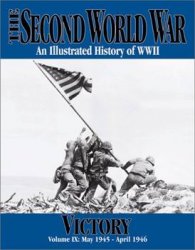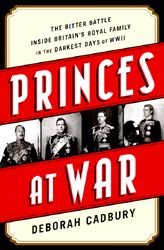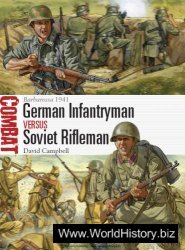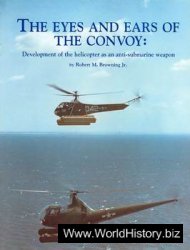The Nazi victories in Europe cast a long shadow
over all the countries the Germans occupied. For
none is this more true than for France. Hitler had
allowed a French government to continue to function,
and this Vichy regime under Marshal Henri
Philippe Pétain enjoyed the support of the great
majority of French people in 1940: for them the
war was over. Vichy represented adjustment to the
new realities and reconstructions, for the ‘old
France’ had demonstrated its rottenness in defeat.
There appeared to be no real alternative to ‘honest
collaboration’, carrying out the terms the Germans
had imposed. But where did honour end? Vichy
militia and police helped the Germans to arrest
other French citizens to be handed over to
Gestapo torturers. Then the Jews were rounded up
to be sent to their deaths in the east, not only the
foreign refugees admitted before the outbreak of
war, but French men, women and children. The
war produced great heroes in France: men and
women risking their lives for the persecuted, and
for the Allied cause. But there were tens of thousands
of French men and women who served Vichy
France, some in important roles, others in minor
capacities, from Pierre Laval, the prime minister to
the lowliest policeman or civil servant. They made
their living serving the state, and the great majority
were able to continue their careers after the war,
with no apparent stain on their character.
In France the situation changed only gradually
in de Gaulle’s favour, gaining added impetus after
the German invasion of the Soviet Union in June
1941. The strong French Communist Party now
reversed its policy of collaboration, and the resistance,
until then scattered and weak, now with
the adhesion of the communists developed into a
strong movement. As the chances of German
victory receded with defeats in Russia and North
Africa and as the Nazis more and more ruthlessly
exploited the human resources of French labour,
forcing many Frenchmen to work in German factories,
so support for Vichy dwindled. In 1943
the various resistance groups agreed to combine
and, looking to de Gaulle in London for leadership,
formed a National Council of Resistance
with the help of a Gaullist emissary parachuted to
France from England. Of course, this did not
mean that all rival political ambitions had ended.
While the communists fixed their eyes not only
on liberation, but on a post-war communist transformation
of France, de Gaulle skilfully laid his
plans for frustrating them and for placing himself
at the head of a national government. This meant
controlling the resistance movement and subordinating
it to his own administration. With liberation
in 1944, the unity based on fighting the
Germans came to an end, and France’s political
future stood shrouded in uncertainty. Would the
communists take power? Would de Gaulle be able
to do so? Or would there be a civil war and an
Anglo-American occupation?
In the event, millions of ordinary people were
now only too happy to identify with a French
hero and to rally around a new saviour to replace
the discredited 80-year-old Marshal Pétain. With
the help of the BBC, de Gaulle had projected the
myth of an unconquerable France, and he himself
fitted the desired image. It was an extraordinary
feat, as he imbued the people with an inflexible
faith in France and in the recovery of its rightful
place as a world power, thereby relegating 1940
to no more than one defeat in battle that could
not alter France’s destiny. A gift for oratory
enabled de Gaulle to do for France what
Churchill had accomplished during the darkest
hours of the war for Britain. Politicians in France
of all shades of belief, accepted de Gaulle as indispensable
in the months immediately following the
expulsion of the Germans. On 26 August 1944,
in scenes preserved by the newsreel cameras, de
Gaulle strode through liberated Paris, with
snipers still firing from the rooftops. Even so,
largely because of American reluctance, the Allies
waited until October before granting full recognition
to de Gaulle’s provisional government.
In the resistance movement, the communists
were the largest and most disciplined element.
The socialists, as in Italy later, were divided on
the issue of whether or not to collaborate with
the Marxist communists in a broad-left front. The
president of the Resistance Council was Georges
Bidault, an anti-Marxist who identified with progressive
Catholic aims; he headed a new party, the
Mouvement Républicain Populaire (MRP) which,
after the communists and socialists, formed the
third and smallest group in the resistance. But de
Gaulle deliberately stood aloof from party politics
in 1944 and 1945, refusing to lead any party of
his own; he claimed to speak for France above
parties. Yet, by stating as the aims of his policy
the restoration of national greatness and the political,
social and economic renovation of France, he
appealed to popular feelings on the left: liberation
from the Germans would go hand in hand with
reform. Big business, which had collaborated with
the Germans, and the conservative supporters of
Vichy, as well as all those who had done well
under German occupation, had to lie low politically.
Until the eve of liberation, supporters of de
Gaulle represented only a minority of the French;
after liberation they were able to lay claim to the
government without opposition.
How did this come about? The communists
were on the spot, well armed and well organised.
They had worked with the non-communist resistance
under de Gaulle’s aegis, but would they
now capitalise on their strong position in the
country to seize power? Again, as in Italy, the
communists made no such bid to challenge de
Gaulle directly. Their leader, Maurice Thorez,
returned from Moscow in November 1944 and
gave his public approval to communist cooperation
with the other parties and their participation
in a provisional government headed by de
Gaulle. The French communists, like the Italian,
had probably received their instructions from
Moscow. The Germans were not yet defeated and
it was in Russia’s interest to maintain Allied unity.
An open attempt by communists to take power
in a Western country might alienate Britain and
the US. Stalin even thought that such an event
could open the way to a change of alliances, the
Western Allies siding with Germany against
Russia – his ultimate fear. De Gaulle succeeded
therefore more easily than anyone expected. The
provisional government was able to establish its
authority over the whole country, with the communists
securing only the less important ministerial
posts. The independent local committees and
militia were dissolved without resistance. For two
years, from 1944 to 1946, the communists participated
in governments with the socialists and
the MRP. Despite their strength, the communists
could not dominate French politics in succeeding
years and were excluded from government. De
Gaulle’s first period of office was short and ended
in 1946, but he had already made a permanent
impact on French politics.
During the first year de Gaulle had acted cautiously
at home. The obligatory trials of prominent
Vichy collaborators had taken place. The
Vichy prime minister Pierre Laval was sentenced
to death and executed, though Pétain’s death sentence
was commuted to life imprisonment.
Newsreels showed pictures of girls with heads
shaven as punishment for consorting with
Germans. Wild summary ‘justice’ was meted out
by the forces of liberation; this gave opportunities,
too, for the simple settling of old scores. The
best estimate is that nearly 10,000 French were
killed. Regularly constituted law courts passed
7,037 sentences of death, but most received the
presidential pardon and only 767 executions were
actually carried out. Of the just over 167,000
tried, almost half were acquitted and 27,000
received jail sentences. So the prisons were filled
with collaborators. Even so, not all the French
citizens who saw in Vichy a legitimate government
which they actively supported could be tried. After
1950, less than 5,000 remained in prison. The trials
ceased. They had been intended to cleanse
France from the Vichy taint. In fact, the only practical
policy was to draw a veil over the Vichy years,
to conciliate and to unite the nation. It was left to
a few ardent individuals to continue to the present
day to uncover those responsible for Vichy crimes,
much to the embarrassment of some of the older
generation of Frenchmen. Somehow sleeping
dogs will not lie; the whole war generation will
have to pass away first.
The provisional government after liberation
was faced with daunting problems of restoring the
dislocated and shattered French economy. There
were grave shortages of food and fuel. The infrastructure
of transport, bridges and railways had to
be rebuilt. State intervention and the takeover of
ailing industries were seen as necessary to enable
the nation to recover rather than as policies in
conformity with socialist ideology. The provisional
government in 1945 responded to the
demands of the resistance and nationalised the big
banks, insurance, gas, electricity and coal as well
as companies which, like Renault, had collaborated
with the Germans. This created the large
state sector of industry that has been characteristic
of post-war France. Joint committees were set
up in firms employing more than fifty workers to
give employees a role and a stake in the success
of the company. But hopes for ‘industrial democracy’
were unfulfilled, because employers continued
to take the critical financial decisions.
Employees did, however, gain from the increase
of family benefits and the introduction of compulsory
insurance. But this did little to relieve the
grim economic situation. Workers’ standards of
living were under constant pressure from inflation.
During the Vichy years (1940–4) retail
prices had risen more than three times but hourly
wages had only doubled. At the end of the war,
with too much paper money chasing too few
goods, prices shot up. There was much industrial
unrest, made politically more dangerous because
the largest union, the Confédération Générale du
Travail (CGT), was controlled by the Communist
Party. De Gaulle rejected the restrictive monetary
policy necessary to reduce the flood of paper
money held by the population and so defeat inflation
and restore the value of the currency.
Instead, to maintain his popularity, he decreed
salary increases and simply postponed tackling
France’s economic problems.
Nevertheless, de Gaulle’s greatest achievement
must be recognised. He stopped France from
sliding into a civil war between the active supporters
of Vichy, including the police and militia
on the one side, and the resistance on the other.
Amid the chaos he used his enormous prestige as
the embodiment of France to impose a centralised,
unified state on the warring factions.
De Gaulle knew that, once the emergency was
past and the war was over, the provisional government
would need to be transformed into a
democratically elected one, and the provisional
state into a stable republic. Following a national
referendum held in October 1945, the French
people voted overwhelmingly for a new constitution
to be framed and for a constituent assembly
to be elected and given the task of drafting the
constitution. In the unique post-war circumstances
the left gained more seats in the Assembly
than its usual electoral strength warranted, given
that half the electorate tended to be conservative:
the communists benefited most with 160 seats,
and the socialists won 142. The new progressive
Catholic Party, the MRP, also did surprisingly
well, gaining 152 seats. The socialists and communists
thus achieved an absolute majority in the
Assembly of 586 deputies.
A deep rift soon opened up between de Gaulle
and the majority in the Assembly on the question
of the future constitution. De Gaulle was clear
about the essentials: France must not relapse into
the political instability of the Third Republic. He
therefore insisted on a strong executive headed by
the president, and on an assembly that would
have a share in government but should not be
able to exercise sovereign power. Meanwhile, in
the Constituent Assembly the communists attempted
to gain the agreement of the socialists to
a common programme that would exclude the
MRP, but the socialists, who held the key and had
no wish to be swallowed up by the communists,
insisted on a three-party (communist, socialist,
MRP) alignment. The communists chose to bide
their time, all parties agreeing to offer de Gaulle
the presidency. In the complicated political
manoeuvrings that followed, de Gaulle refused to
give the communists any of the key ministries
they claimed – war, interior or foreign affairs –
and threatened to resign. The socialists and MRP
supported him, and the communists, faced with
a choice of exclusion or participation, gave in. So
the first round, with the critical help of the socialists
and MRP, went to de Gaulle. The political
crisis of November 1945 provoked by the communist
demands was thus resolved and a government,
headed by de Gaulle and comprising
ministers drawn from all the major parties, was
formed.
But the fundamental issue remained to be
settled: despite deep divisions between the socialists
and communists in the Assembly, it became
clear that these two parties would reject de
Gaulle’s concept of a strong, independent presidency
and executive in favour of leaving controlling
powers with a parliamentary assembly. In
many ways the Assembly was already asserting the
right to make judgements on the policies that de
Gaulle wished to adopt. On the constitutional
question de Gaulle could count only on the
support of the MRP, and he reacted with bitterness
to the prospect of defeat in the Assembly.
He believed that he could rely on the support of
the mass of the French people. The politicians in
the Assembly, he was convinced, were combining
against him to safeguard their own selfish interests
rather than those of France. Feeling nothing
but contempt for the parliamentarians, he decided
to force their hand. He confided to one of his
ministers at this time:
I don’t feel that I am made for this kind of
fight. I don’t want to be attacked, criticised,
challenged every day by men who have no
other distinction than the fact that they got
themselves elected in some little place in
France. . . . I can’t resign myself to enduring
criticisms of parties and irresponsible men, to
seeing my decisions challenged, my ministers
criticised, myself attacked, my prestige diminished.
Since I cannot govern as I wish, that is
to say fully, rather than see my power dismembered,
I’m going!
That conversation took place shortly before de
Gaulle dropped his bombshell on 20 January
1946 and resigned.
His frustration and anger were genuine. All his
policies abroad, in Germany, Indo-China and the
Middle East, had experienced setbacks as well.
But there was calculation too. He did not believe
the nation would be able to manage without him.
It was a tactical retreat and he expected to be
recalled on conditions he himself would set.
Several years later he acknowledged his miscalculation:
‘I have made at least one political mistake
in my life: my departure in January 1946. I
thought the French would recall me quickly.
Because they didn’t do so, France wasted several
years.’
After de Gaulle’s resignation, the French people
– influenced by his opposition – rejected the draft
constitution in a referendum held in May 1946.
Then a second constituent assembly was elected
to draft an amended constitution. This gave
women the vote, adopted proportional representation
and created a second chamber but left the
real political power in the lower chamber, the
National Assembly, which also elected the president.
The constitution resembled in most important
respects that of the Third Republic and was
to create the same governmental instability. But
despite de Gaulle’s strong opposition the new
constitution was narrowly approved in a referendum
in October 1946, nearly 8 million dissenting
and just over 9 million in favour, with almost
a third of the electorate not bothering to vote at
all. It was an inauspicious start for the Fourth
Republic.
The year 1947 was a particularly bad one for
France. Food became still scarcer in the cities, and
coal production fell. Prices doubled. Workers
whose real wages were rapidly diminishing came
out on strike, needing little encouragement from
the communist-controlled CGT. The Communist
Party found itself in the spring of 1947 faced with
a choice between remaining in the three-party
government (with the MRP and the socialists)
which opposed the strikes, or supporting the
workers in their strike demands. Moreover,
France’s harsh policy of re-establishing its authority
over the colonies, and the developing Cold
War, made it increasingly difficult for the communists
to collaborate with their coalition partners.
The socialist prime minister solved the
problem for them by dismissing the communist
ministers. Despite their hold over the trade
unions and their support among the electors, the
communists could henceforth play only an oppositional
role in French politics and society. They
were not to regain a share of power in government
for thirty-four years.
The stability of the Republic was also threatened
from the right. Admirers of de Gaulle were
secretly plotting to found a party as a vehicle for
the general’s early return. De Gaulle himself was
thinking along the same lines and began recruiting
supporters in the autumn of 1946 to set up a
national movement drawing support from all the
French to ‘save France’. In April 1947, boosted by
the wave of strikes, he went public in a speech in
Strasbourg. He denounced the communists and
proclaimed his new movement, a kind of antiparty
party, calling for the ‘Rally of the French
People’ under the banner of his leadership, the
Rassemblement du Peuple Français (RPF).
The question remained: if it was not a party,
how would de Gaulle regain power under the constitution?
The answer was far from clear, except
that de Gaulle had no dictatorial intentions and
would accept the presidency only if offered it constitutionally.
But the movement still looked dangerously
authoritarian, certainly unparliamentary,
given de Gaulle’s contempt for ‘rigid parties’ and
his call for an ‘orderly, concentrated state’. He
promised that the movement would act within the
framework of the law, but ‘over and above differences
of opinion’, so that ‘the great effort of common
salvation and the profound reform of the
state may be successfully undertaken’. It looked
for a time as if de Gaulle would succeed, as millions
of the French were ready to support him during
that difficult year. In the local elections in
October 40 per cent of the electorate gave their
vote to candidates of the RPF. But just four years
later, in the elections for the new National
Assembly in 1951, de Gaulle’s support had nearly
halved. The ‘Gaullists’ had become just another,
albeit strong, parliamentary group. The game was
up for the time being and two years later de Gaulle
withdrew to the village of Colombey-les-DeuxÉglises.
The economy of the Fourth Republic was
recovering. A landmark in that recovery was the
adoption in January 1947 by the National Assembly
of what became known as the Monnet Plan. De
Gaulle had appointed Jean Monnet after the
Liberation to head a committee to prepare a plan
for the reconstruction and modernisation of the
French economy. Monnet’s roots were deeply
embedded in traditional France: he was born in
1888 in Cognac into a family of brandy distillers.
But he learnt to combine his understanding of
conservative France with the international experience
he gained as a salesman for the cognac
concern. In particular he was able to observe at
first hand the drive, flexibility and efficiency of
twentieth-century America. His international perceptions
and idealistic belief in the betterment of
society through cooperation were heightened by
service for the League of Nations and the French
government before the outbreak of war in 1939.
Monnet joined the Free French and came to
Britain after the debacle of 1940; it was he who
suggested to Churchill the idea of an Anglo-
French union. In 1943 he became a member of the
French Committee of National Liberation, for
which he organised a group of experts. The work
of his committee bore fruit in the plan he proposed
in 1947. Monnet was to exert a lasting influence,
not only on French economic planning, but on
the coordination of the West European economies
and the establishment of the Common Market.
Drawing on his practical experience he passionately
believed that collective action, nationally and internationally,
was necessary to solve the problems
confronting France and Europe.
The plans produced by his Commission, the
Commissariat Général du Plan, were not directives,
but targets and guides showing how the different
elements of the economy could best be
coordinated in order to achieve the proposed
increases in production. Monnet had no intention
of controlling industry as was done in communist
countries. Much depended on his personal influence.
The nationalised industries provided a good
starting point because they were more amenable
to government planning, and Monnet’s Plan dealt
primarily with improving supplies of fuel and
energy, as well as with oil refineries, transport,
steel, cement and tractors to increase agricultural
productivity. The aim of the Plan was to raise
industrial and agricultural output by 25 per cent
over 1929 within three years. This would make
possible a substantial rise in the standard of living.
It was presented as an emergency plan of action.
Instead it was to become a much more permanent
institution with a series of five-year plans.
The remarkable success of continuous economic
planning based on long-term objectives contrasted
with what appeared to be the hopelessly
inefficient political scenario so characteristic of
France. This political instability led many to
underrate France’s fundamental strength.
In world affairs, France had not won an equal
place with Britain in 1945. France’s German policy
of attempting to detach the Rhineland and the
Ruhr achieved no success. The US and Britain
were coordinating and centralising Western
Germany, isolating France in its German occupation
zone. De Gaulle’s cherished hope of establishing
France as a third force and as a bridge
between the Anglo-Saxons and the Russians,
which had led him to Moscow and to the conclusion
of a new treaty between France and the Soviet
Union in 1944, was an idle dream. Stalin had no
intention of using de Gaulle as an intermediary,
and the realities of the Cold War destroyed any
notions of French bridge-building. In reasserting
French colonial rights by the use of force in
Madagascar, the Middle East, Algeria and Indo-
China, France enmeshed itself in Third World
struggles for independence which, for more than
two decades, caused many deaths, bled France of
resources and weakened it at home and abroad,
only to end in failure. Finally, 1947 was a year of
economic crisis and industrial unrest. Yet in retrospect,
it was those very failures and difficulties that
turned French thoughts in new directions.
French economic recovery was not possible
without German economic recovery and Franco-
German cooperation. De Gaulle was the first
French statesman to offer the German people reconciliation
but it was on condition that they
became junior partners and accepted a weakened
German state deprived not only of the Saar but
also of the Rhineland and Ruhr, which would be
internationalised and formed into a separate
‘European’ state. But such aims were as much
opposed by the US and Britain as they were by
Germany. As conflicts with the Soviet Union
deepened, so earlier anxieties receded. Germany
was likely to remain divided between the West
and the Soviet Union; control over armaments
and the Ruhr would continue in any case. But
West German support would have to be won: this
meant concessions and no further amputations of
German territory.
For the governments of the French Fourth
Republic it was, therefore, not so much a perceived
direct Russian threat, the fear that Soviet
tanks would cross the Elbe and head for France,
that provided the impetus for a change of policy;
rather, it was the realisation that French aims in
continental Europe – dominance over Germany,
bridge-building to the east and maintenance of
French independence in the face of the Atlantic
Anglo-Saxon powers – were doomed to failure as
an indirect consequence of the Cold War. France
itself was now threatened with isolation as Britain
and the US chose to start building up West
Germany. France might, nevertheless, have taken
its time to change course had it not been for its
dire economic condition, which obliged the government
to rely on American aid.
Internally and externally in 1947 pressures were
thus mounting for a reorientation of French policies.
There was soon tangible evidence that a new
course was being followed. An Anglo-French
treaty of alliance was concluded in March 1947
(the Treaty of Dunkirk) to reassure France as
Germany revived, and as a first step towards closer
economic and political collaboration in Western
Europe. In June 1947, General George Marshall,
the American secretary of state, delivered his
famous address at Harvard promising American aid
on condition that the European nations coordinated
their planning. His proposal was welcomed
in France, and Anglo-French agreement on how to
proceed followed speedily. On the initiative of the
French and British foreign ministers, Bidault and
Bevin, the European nations were invited to a conference
in Paris with the purpose of formulating
their responses to Marshall’s offer. West Germany
was included in Marshall’s Plan for European economic
cooperation (theoretically the German
Eastern zone, all the nations under Soviet control
and the Soviet Union were likewise included, but
they were expected to reject the conditions of aid).
Acceptance of Marshall Aid was as essential for
France as it was for the other Western nations if
recovery was to be accelerated. The Plan also held
out the hope that Western Europe might one day
be better able to maintain its independence from
US influence. De Gaulle realised this as quickly as
anyone and the Gaullists called for a European
Union based on a federation of states. Although
their motivation and aims of policy were by no
means identical, the US, Britain and France found
their policies converging in 1947. Britain still saw
itself as separate from continental Europe but also
favoured a strengthening of the Western continental
states through collaboration.
Thus, despite earlier differences, perhaps the
most significant outcome of the early post-war
years was not only the recovery of France, but the
drawing together of Western Europe under
Anglo-French leadership with firm US support.
The shape of the future Western Europe and the
broad Atlantic economic partnership had begun
to emerge in 1947. The shocks of the crisis years
1947 and 1948, the coup in Czechoslovakia and
the Berlin blockade, created a sense of common
danger which reinforced these ties, but Britain,
having first provided a strong impetus, was to
draw back from closer economic cooperation with
the beginnings of West European integration in
the 1950s.




 World History
World History





![Stalingrad: The Most Vicious Battle of the War [History of the Second World War 38]](https://www.worldhistory.biz/uploads/posts/2015-05/1432581864_1425486471_part-38.jpeg)



